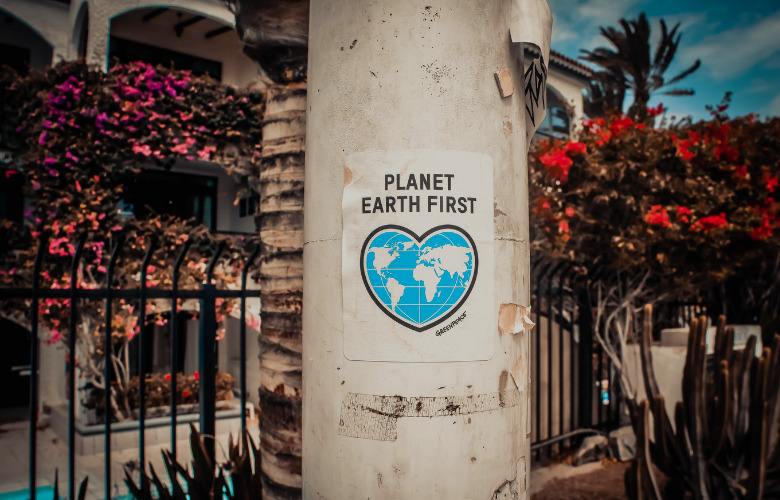
As we move into 2022, more and more people are becoming aware of their personal impact on the environment. How can theatre industry workers enact sustainable practices within their productions? By questioning authority and creating a plan from the very beginning, as shared at a panel at EPIC on January 10, 2022.
Sustainable Practices in Theatre was a session held at EPIC and hosted by Valerie Lau-Kee of Broadway Cares/Equity Fights AIDS. Molly Braverman, director of Broadway Green Alliance, Christian Gade Bjerrum, a Danish actor and environmental activist and Peter Maccoy, an educator at the Royal Central School of Speech and Drama in London shared their expert knowledge on how to create environmentally friendly theatre.
“If we’re thinking about how to recycle at strike, we’re too late,” Braverman said. She encouraged theatre makers to engage in conversation with higher ups about sustainability even before productions. Consider what can be reused or recycled and what aspects should be prioritized. It goes back to pre-production – Maccoy discussed standardizing measurements and creating set pieces, which can often be very wasteful, that can be reused and put together in different ways. Maccoy also recommended the Theatre Green Book, a new resource to set a common standard for UK theatre sustainability.
“You really have to look at the whole big picture of everything,” Bjerrum said. This means everything you bring in, everything you use and even transportation.
Braverman suggested that an easy place to begin is in the green room. If your theatre’s green room is stocked with single use plates, cups and cutlery, solicit donations. Most people have spare cups or mugs. Ask for donations from people working on the show, management or even audiences. Communicating to an audience that you are prioritizing sustainability is a great way to engage with them, Braverman said. “Use your powers as communicators and storytellers to share this outwards,” she said.
Encouraging workers to speak up to higher-ups about sustainability efforts was a common theme in the session. Bjerrum said the focus of his work was engaging leaders to make the transition to sustainability. “There are always things that can be improved,” he said.
Braverman shared the story of her Broadway Green Alliance co-director who one day was talking with a big Broadway producer about sustainability efforts. He said there was nothing he could do, but Braverman insisted that the producer has all the power. Producers should prioritize sustainability from the beginning, she said. No matter what your role is, however, you have power. Braverman said many are quick to throw away their own power, saying things such as “I’m only a stage manager, what can I do?” She emphasized questioning authority.
“Don’t throw away the power you have in the room.”
The most important part is starting to make a change right away. Business as usual is unsustainable, Maccoy said. But a truly sustainable future is possible. Throw away the idea of the perfect environmentalist, Braverman said, and do whatever you can. It is impossible to be perfectly green, but everyone can be greener.
Sustainability in Production Alliance
If you missed EPIC and are interested in checking it out, you can still purchase tickets to view sessions on demand here.
New Research Shows Support for Abolishing 10 Out of 12s
Broadway Extends Mask Mandate into 2022

© 2021 TheatreArtLife. All rights reserved.

Thank you so much for reading, but you have now reached your free article limit for this month.
Our contributors are currently writing more articles for you to enjoy.
To keep reading, all you have to do is become a subscriber and then you can read unlimited articles anytime.
Your investment will help us continue to ignite connections across the globe in live entertainment and build this community for industry professionals.